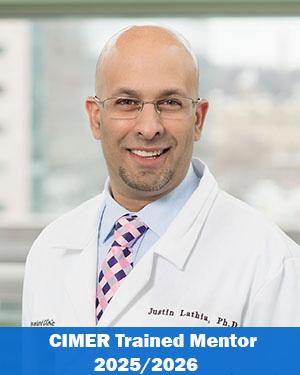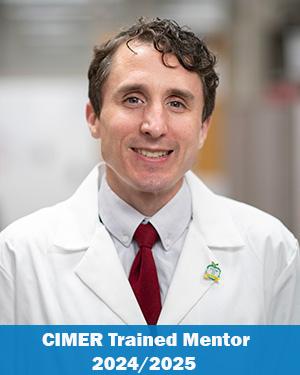Research News
10/25/2021
The Consequences of Diet on Brain Cancer Severity and Disease Pathology
Drs. Lathia, Silver and Hine report that a high-fat diet causes hydrogen sulfide dysfunction and leads to more severe disease with poorer outcomes among preclinical glioblastoma models.

According to new findings published in the Journal of Clinical Investigation, Cleveland Clinic researchers have gained new insights into the connection between a high-fat diet and glioblastoma, the most common primary malignant brain tumor.
Findings from the team-led by Department of Cardiovascular & Metabolic Sciences researchers Justin Lathia, PhD; Daniel Silver, PhD; and Christopher Hine, PhD-confirm that a high-fat diet accelerates and intensifies glioblastoma in preclinical models and highlight the need for more research into the possible utility of dietary interventions to reduce disease risk and severity in humans.
Drs. Lathia, Silver and Hine identified hydrogen sulfide (a molecule involved in many critical biochemical reactions in the body) as a key player in this diet-glioblastoma link. Their results suggest that increasing the bioavailability or production capacity of hydrogen sulfide in combination with current standard-of-care glioblastoma therapies may improve treatment efficacy, which Dr. Lathia says is desperately needed.
"Glioblastoma has one of the most aggressive disease trajectories of any cancer and recurrence is quite common, due in large part to a dangerous subset of cancer cells called cancer stem cells," explained Dr. Lathia, vice chair of the Department of Cardiovascular & Metabolic Sciences and co-director of the Center of Excellence in Brain Tumor Research and Therapeutic Development. "It is critical that we develop more effective therapies for patients with the disease."
Study details
Here, the researchers fed mice with glioblastoma a high-fat or standard diet. They saw that compared to a standard diet, the high-fat diet was associated with more aggressive disease and reduced survival. They then collected tissue samples from the two groups and compared them using advanced analytic and imaging techniques.
"Brain tissue from the high-fat group exhibited an increased accumulation of saturated fats, which curtailed hydrogen sulfide production and signaling by as much as 50 percent," said Dr. Silver, who is a research associate in the Lathia lab and first author on the study. "In its absence, tumor cell growth was increased; the aggressive, stem-like character of the malignancy was enhanced; and necrotic cell death was nearly eliminated."

A team-based approach
Hydrogen sulfide has been a central focus of other areas of research-including in the fields of aging, neurodegeneration and metabolism-but little is currently known about its role in cancer, underscoring the opportunity for this research team to collaborate.
Dr. Hine is a biology of aging researcher who has spent much of his career studying hydrogen sulfide. In tandem papers published earlier this year, he showed that every-other-day fasting improved metabolic, muscular and cognitive fitness among aged preclinical models. According to those findings, dietary restriction increases the production capacity and bioactivity of hydrogen sulfide, which is suspected to confer the metabolic and aging-related benefits.
In this study, the researchers found that the diet-associated hydrogen sulfide dysfunction ultimately increased the proliferation of cancer cells and enabled them to become resistant to treatment. Conversely, stimulating hydrogen sulfide production or administering hydrogen sulfide was found to help kill glioblastoma cells in culture and prevented tumor growth.
"We identified hydrogen sulfide signaling as a possible tumor suppressor for glioblastoma that is highly sensitive to dysregulation by dietary fat," said Dr. Hine, "which may have important implications for identifying new therapeutic targets. Our next steps will be to investigate the specific dietary and/or aging-related mechanisms that cause reduced hydrogen sulfide signaling in the brain."
The study was funded in part by Cleveland Clinic and Case Comprehensive Cancer Center, for which Dr. Lathia serves as co-leader of the Molecular Oncology Program. Dr. Lathia is also scientific director of Cleveland Clinic's Rose Ella Burkhardt Brain Tumor & Neuro-Oncology Center.
Bottom image: Drs. Lathia (left), Silver (middle) and Hine (right)
Featured Experts
News Category
Related News
Research areas
Want To Support Ground-Breaking Research at Cleveland Clinic?
Discover how you can help Cleveland Clinic save lives and continue to lead the transformation of healthcare.
Give to Cleveland Clinic
